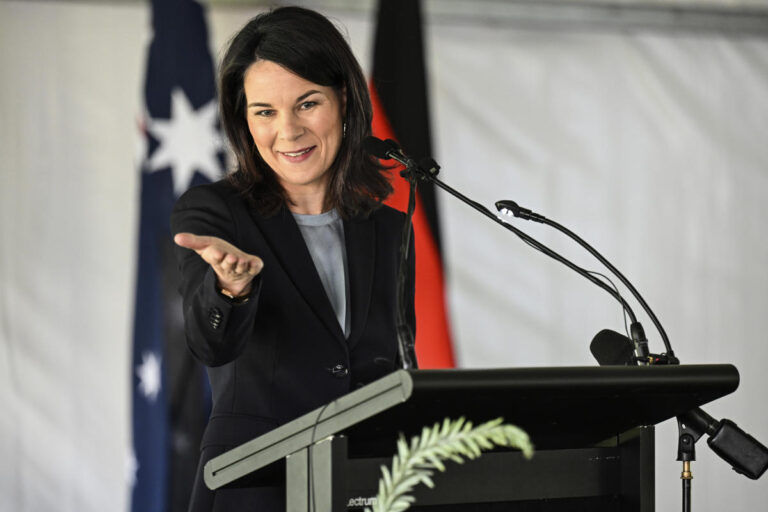BRUSSELS (AP) — Germany’s top diplomat said Friday that Russia will face consequences after accusing its military intelligence service of orchestrating an “absolutely intolerable” cyberattack, and European Union member countries said they would not let “Russia’s malicious behavior in cyberspace” go unaddressed.
Relations between Russia and Germany were already strained, with Germany providing military support to Ukraine in its ongoing war against Russia.
German Foreign Minister Annalena Baerbock said Russian hackers were behind a cyberattack last year targeting the Social Democrats, the leading party in the government coalition.
“Russian hackers attacked Germany in cyberspace,” she said at a news conference in Adelaide, Australia. “We can attribute this attack to the group called APT28, led by Russian military intelligence.”
“This is absolutely intolerable and unacceptable and there will be consequences,” she said.
The EU Council later said that Czech institutions were also targets of the cyber campaign.
In a statement by the EU’s top diplomat, Josep Borrell, the bloc’s countries said they “strongly condemn the malicious cyber campaign carried out by Advanced Persistent Threat Actor 28 (APT28) against Germany and the Czechia”.
The EU said it had already imposed sanctions on individuals and entities responsible for the APT28 attacks targeting the German parliament in 2015. It said it would not tolerate the continuation of such attacks, particularly in the run-up to the European elections in June.
“The malicious cyber campaign demonstrates Russia’s irresponsible behavior in cyberspace, targeting democratic institutions, government entities and critical infrastructure providers across the European Union and beyond,” Borrell said. “The EU and its member states will continue to cooperate with our countries. international partners to promote an open, free, stable and secure cyberspace.
Baerbock is visiting Australia, New Zealand and Fiji, with his trip focused on security policy as China pushes to increase its influence in the Pacific region.
“The defense cooperation between Germany and Australia is close and we would like to deepen and expand it together, because we are in a situation where we face similar threats,” said Baerbock, who is the first German Foreign Minister to visit Australia in 2017. 13 years.
Discussions between Baerbock and his Australian counterpart Penny Wong focused on the conflict in Gaza. “I think we all understand that the only path out of this cycle of violence that we see in the Middle East that is so costly is one that ultimately guarantees a two-state solution,” Wong said.


